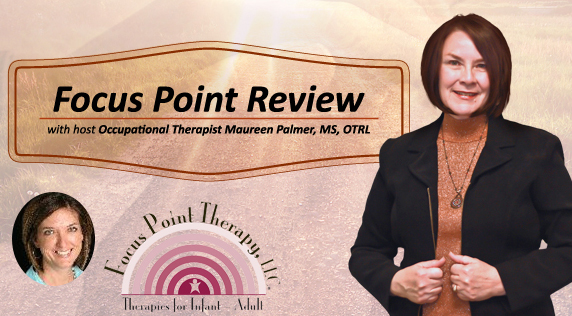A bit of Research: Autism Spectrum Disorder
 There is still controversy over whether Autism Spectrum Disorders result from some interaction with environment after birth (i.e., toxic exposures, immune-modulation post-vaccination, etc) or whether they result from genetic defect(s). Some would argue both are contributing factors, that certain individuals are born with a genetic predisposition and that exposure(s) in the environment turn on or off certain genes that may contribute to the development of Autism Spectrum Disorders. In this study, researchers provide a strong argument for a genetic defect in the “clock genes,” genes that control our perception of time and with genes for a process called “methylation” that controls the turning on and off of our genes or how they are expressed (ultimately how they control our abilities). Individuals on the Autism Spectrum demonstrate numerous symptoms resulting from an impaired perception of time from circadian rhythm (sleep/wake/appetite) to millisecond timing required for speech-language, social/behavioral, cognitive, motor, and visual skills. The Interactive Metronome (IM) is a training program that is administered under the guidance of a certified professional. It is designed to improve the basic timing skills necessary for development of speech, language, cognitive, and motor skills. Many parents and professionals also report decrease in aggressive behavior, improved social skills, and better sensory processing following IM training.
There is still controversy over whether Autism Spectrum Disorders result from some interaction with environment after birth (i.e., toxic exposures, immune-modulation post-vaccination, etc) or whether they result from genetic defect(s). Some would argue both are contributing factors, that certain individuals are born with a genetic predisposition and that exposure(s) in the environment turn on or off certain genes that may contribute to the development of Autism Spectrum Disorders. In this study, researchers provide a strong argument for a genetic defect in the “clock genes,” genes that control our perception of time and with genes for a process called “methylation” that controls the turning on and off of our genes or how they are expressed (ultimately how they control our abilities). Individuals on the Autism Spectrum demonstrate numerous symptoms resulting from an impaired perception of time from circadian rhythm (sleep/wake/appetite) to millisecond timing required for speech-language, social/behavioral, cognitive, motor, and visual skills. The Interactive Metronome (IM) is a training program that is administered under the guidance of a certified professional. It is designed to improve the basic timing skills necessary for development of speech, language, cognitive, and motor skills. Many parents and professionals also report decrease in aggressive behavior, improved social skills, and better sensory processing following IM training.
Wimpory, D. (2002). Social timing clock genes and autism: A new hypothesis. Journal of Intellectual Disability Research, 46(4), 352-358.

 I have had the opportunity of working with many children who are diagnosed with PDD. The diagnosis in general seems to have a very wide range of abilities and areas that are affected. I have found in my area (Northeastern part of the country), that these children seem to fall somewhere between those who are diagnosed with Autism, and those diagnosed with Aspergers Syndrome. So their responses to using the Interactive Metronome have been very similar, with great progress in a shorter amount of time.
I have had the opportunity of working with many children who are diagnosed with PDD. The diagnosis in general seems to have a very wide range of abilities and areas that are affected. I have found in my area (Northeastern part of the country), that these children seem to fall somewhere between those who are diagnosed with Autism, and those diagnosed with Aspergers Syndrome. So their responses to using the Interactive Metronome have been very similar, with great progress in a shorter amount of time.




 Are you looking for a gift for your child who is participating in IM sessions? Parents at our clinic ask me all the time what would be a good gift for their child. Something to enhance their therapy yet is fun. Below I’ve listed some games which can be found at the Wal-Mart, Target, Amazon or Toys R Us, so they are easy to find.
Are you looking for a gift for your child who is participating in IM sessions? Parents at our clinic ask me all the time what would be a good gift for their child. Something to enhance their therapy yet is fun. Below I’ve listed some games which can be found at the Wal-Mart, Target, Amazon or Toys R Us, so they are easy to find. Hanging out with friends after school is a big part of a teenager’s life and is crucial for developing people and communication skills. For those with Autism Spectrum Disorder (ASD), social activity is very rare, especially after school and out of the family circle. This is something that has kept Professor Paul Shattuck of Washington University in St. Louis busy for many years; he says that limited or absent peer relationships can negatively influence health and mental health, especially during this difficult age.
Hanging out with friends after school is a big part of a teenager’s life and is crucial for developing people and communication skills. For those with Autism Spectrum Disorder (ASD), social activity is very rare, especially after school and out of the family circle. This is something that has kept Professor Paul Shattuck of Washington University in St. Louis busy for many years; he says that limited or absent peer relationships can negatively influence health and mental health, especially during this difficult age.